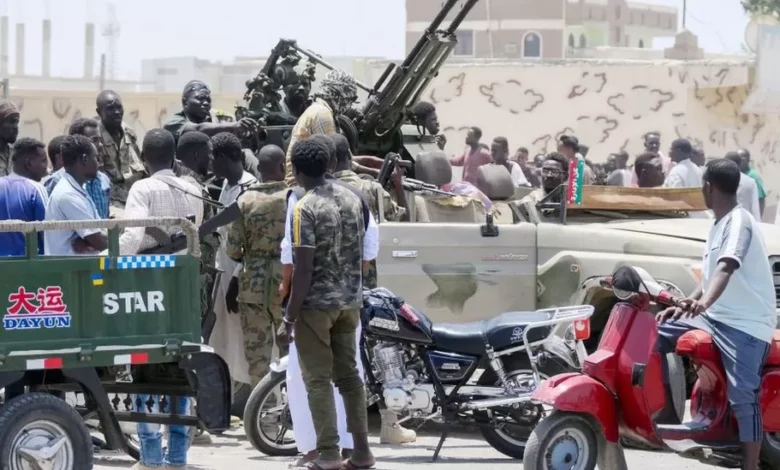
There have been fierce clashes across Sudan as fighting between rival armed factions continues for a third day.
Violence between the army and a paramilitary group called the Rapid Support Forces (RSF) has left around 100 people dead, a doctors’ union said.
Clouds of smoke were visible above Khartoum’s main airport, with TV showing images of fires and explosions. Army air strikes have been targeting RSF bases, some of which are embedded in residential areas.
Both sides claimed to control key sites in the capital, Khartoum, where residents sheltered from explosions.
There has been fierce fighting around the country’s famous seat of power, the Republican Palace. The army says it remains in control of all its bases, including its Khartoum headquarters, where heavy weapons have been used during intense clashes.
The sound of gunfire and explosions has hardly stopped since Saturday morning. One estimate put the number of injured at 1,100.
Beyond the capital, the army says it is in control of eastern parts of the country and the key Red Sea port of Port Sudan. But fighting is continuing in Darfur, where the RSF is strong, and also in Kordofan in the south.
Alarmed neighbours; Kenya, South Sudan and Djibouti are planning to send their presidents to help mediate in the crisis; however, this is not currently possible because the airport is closed. The US, European Union (EU) and UK have called for an immediate end to the fighting.
On Sunday, both sides held a temporary ceasefire to allow the wounded to be evacuated, although it was not clear how strictly they stuck to it.
Doctors warn that the situation at hospitals in Khartoum is extremely difficult, and that the fighting is stopping both staff and medical supplies from reaching injured people.
According to the Sudan doctors’ union, a wayward shell hit a hospital south of the capital, but this has not been independently verified. Sudan state TV is now back on air and broadcasting pro-army songs and anthems after many hours without transmission. —BBC






